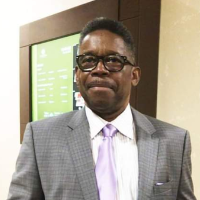James Posey who once ran for mayor is challenging wording of ballot measure to remake Portland city government. Posey has filed a lawsuit challenging the ballot language city officials wrote for a proposed measure to change Portland’s form of government. It is also looking to change the way it elects members of City Council.
The lawsuit names City Attorney Robert Taylor and Auditor Mary Hull Caballero as defendants.
The suit was filed in Multnomah County Circuit Court on Friday. The suit requests that the court reject the caption, question and summary that will appear on the ballot and potentially substitute alternative wording he proposes.
James Posey is the co-founder of the National Association of Minority Contractors of Oregon. He ran for mayor in 2004 in an unsuccessful bid. He argues in the lawsuit that the official ballot language does not reasonably identity the multiple effects and expansive changes the measure would make to the city’s governance, administration and elections.
“To ensure that the democratic process is honored and preserved, voters should be alerted to the complexity and novelty of these changes in the city’s governance, administration and methods of elections in as much detail as possible within the statutory word limits of the ballot title,” Posey contends in the filing.
The expansive measure would end Portland’s individual City Council members acting as administrators over the city’s many bureaus and departments. It would create four new districts so that council members are no longer chosen citywide. The change would create a new city administrator, who would be appointed by the mayor, subject to City Council approval
Another change outlined is the city will have three council members elected from each district, expanding the council from five members to 12. There will be a switch from holding a primary election in the spring followed by potential two-way runoffs in the fall for both mayor and council members to electing those officials through ranked-choice voting in a single fall election.
Posey’s lawsuit states that the details of how ranked-choice voting would operate to select three winners in each City Council district are extremely complex. Winners would only need to secure 25% of votes in their district to be elected and voters would be asked to rank their preferences among as many as a dozen or more candidates, none of which is reflected in the ballot language, a memo filed with the court along with his lawsuit says.
















